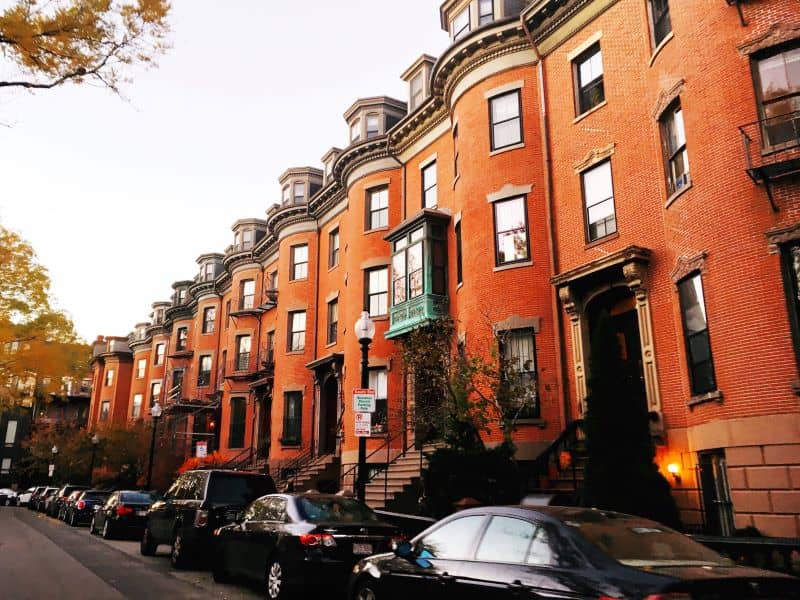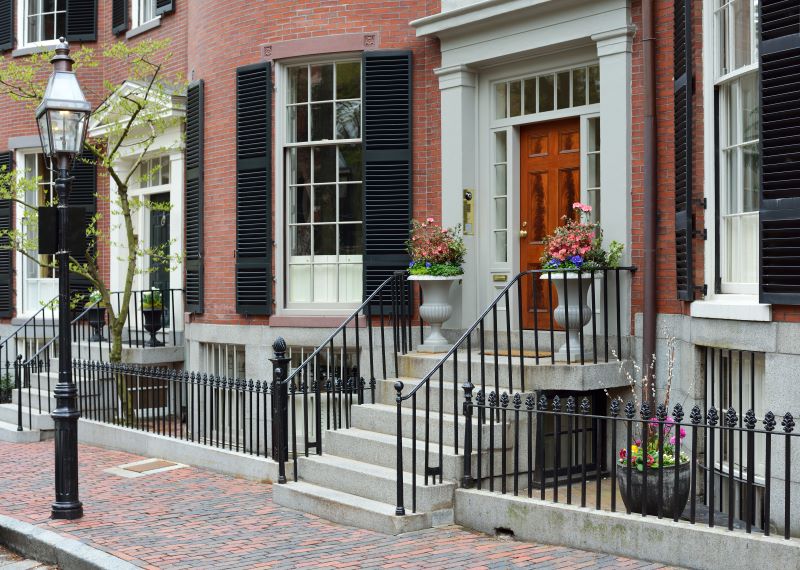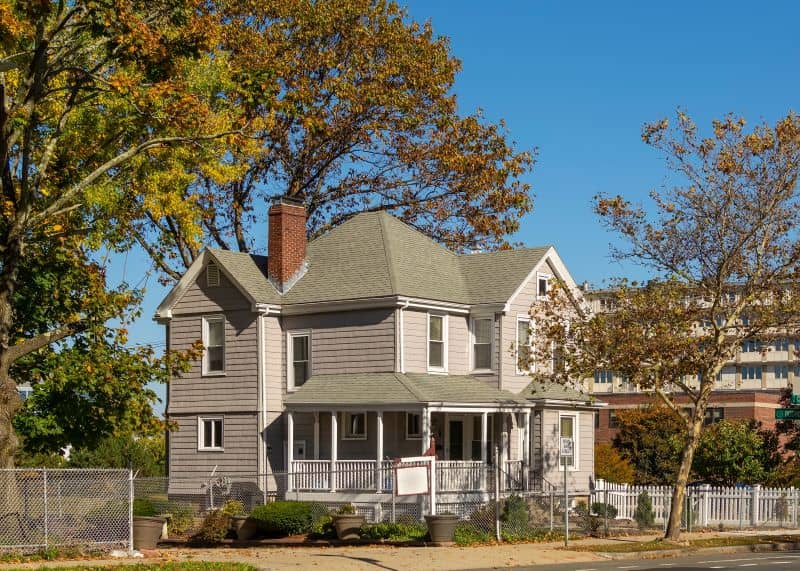
Get to know the current housing market.
About this series.
“Is now the time to buy a new home?”
“Should I hang onto my rental property, or should I unload it before I run into trouble?”
“Will I ever be able to sell my condo?”
“Are current housing prices sustainable?”
“Will the Boston housing market collapse in 2020?”
“Are people leaving big cities like Boston?”
2020 has given all of us a lot to think about, especially when it comes to making decisions around real estate. It doesn’t seem like the real estate market trends that we kicked off 2020 with correspond to the COVID-19-era reality. By the same token, any housing market predictions we could make right now will only get us so far. 2020 is an unprecedented year and nobody really knows how long it will be before things get back to normal, in life and in real estate.
You still need somewhere to live, right? In this series, we’re going to take a deep dive into the Boston housing market. We want to help home sellers, buyers, landlords, investors, and other interested parties get their footing in these strange and unbelievable times. We’ll explore topics like:
- What does the real estate forecast look like for the next three years? How about the next five? There is a fair amount of uncertainty around the future of real estate, but there are a few things we can say with confidence.
- Is the Boston real estate market slowing
- How were things looking before coronavirus knocked everyone for a loop? Here is some in-depth analysis, prepared by someone that lives and breathes real estate, our CEO Demetrios Sapoglou, to help you understand the deeper fundamentals of the 2020 Boston housing market.
down? Ok, it has slowed down, but that doesn’t mean game over. Not by a long shot.
We chose these topics because the people we help are concerned about the current state of affairs. Many of them are trying to answer urgent questions like “Should I put my rental property on the market now, or should I wait until next year?” as we speak. These same people are also concerned about the future. They want to know if a condo near Fenway Park or a single-family home in East Boston will seem like a sensible investment in 2023.
These pieces are focused on the Boston real estate market, but some of our analysis may apply to other markets as well.

Main takeaways.
Don’t have time for the deep dive? Here are some key takeaways:
- It’s tough out there, especially for landlords – No doubt about it, COVID-19 has disrupted the Boston real estate market. While the homebuyers’ market has held its own – and happens to be one of the fastest-recovering markets in the U.S. – the Boston rental market is taking a beating. One of the main drivers here is higher education. Most of Boston’s universities have pivoted to online or hybrid online/in-person attendance models, which means that a lot of rental properties did not get leased for September. We saw massive increases in vacancies unlike anything Boston has seen before. The Real Time Availability Rate (RTAR) and Real Time Vacancy Rate (RTVR) both went over 9%, which is unheard of in Boston. Rents will continue to go lower as landlords see winter on the horizon and hate to have vacant apartments going into cold weather.
- · Single-family homes are doing ok, with increased activity in the suburbs – As we mentioned, Boston home sales are doing comparatively well. There has been more interest in suburban and exurban homes than there was pre-coronavirus. This seems to be because work-from-home policies have given homebuyers more geographic flexibility, as well as incentive to choose a more spacious home than they might find in the heart of Boston.
- Condos are down, but not out – The Massachusetts condo market has suffered in 2020, registering a 45 percent year-over-year drop from 2019. At the moment, in-town condos are less appealing properties – they are typically more difficult to quarantine in than single-family homes, and condo owners are currently missing out on many of the big-city amenities that make these properties attractive to begin with (such as access to the nightlife in Fenway). That said, we are skeptical that vibrant home sales in the suburbs and lagging condo sales in the city represents a permanent shift in the Boston housing market.
- All-time low interest rates are driving activity – With interest rates on long-time mortgages hovering around three percent, the real estate market has been one of the few bright spots in a struggling economy. Mortgage applications are up 25 percent from 2019, but this momentum may prove difficult to sustain as the number of available properties decreases.
- Boston currently has a housing shortage…and a lot of available apartments – Long-term demographic trends, such as Boomers staying in their homes longer and Millennials beginning to buy into the real estate market, have contributed to an overall housing shortage in the Boston area. Conversely, the rental market is undergoing an acute crisis with a lot of desirable properties sitting empty.
- Boston has excellent fundamentals – In spite of the aforementioned problems, Boston is handling the COVID-19 era better than many American cities. The city offers a diversified economy with a strong technology sector, and its universities will continue to draw educated young people to the city (despite pandemic-related disruptions). The city also has a vibrant venture capital scene and an innovation-oriented mindset.
- What happens in the Boston housing market over the short term depends on COVID-19 – While Boston is about as good as any place to be at the moment, the pandemic can still disrupt the housing market in unforeseen ways. If the pandemic becomes manageable and we return to our previous way of life, the real estate market is more likely to take on a similar trajectory to the one it had in late 2019. If we are still struggling this time next year, we are likely to see deeper, more systemic changes to Boston’s way of life.
A word on forecasting.
A lot of the pieces in this series involve forecasting, which is a pretty tricky proposition at the moment. There are a lot of factors that we cannot fully control for, but that doesn’t mean that we cannot offer sound guidance based on past experience and what we know right now.
Again, the big question mark is COVID-19. Let’s say a vaccine comes out shortly, or the pandemic is successfully managed by other means. That would change the equation in a lot of ways. The Boston housing market would probably bounce back to its original shape more reliably than it would if we are still in the same spot next year. Public policy, the U.S. economy, even the state of international affairs could all bring game changers that a real estate company (even a highly respected, data-driven one like yours truly) would struggle to account for when making predictions.
What we can do, however, is walk you through a reasoned argument based on our analysis and real estate experience. We can also make our reasoning explicit. That way, if conditions change you’ll know how to adapt our forecasts to real life.
Ready to jump in?
At the end of the day, we hope that this series will help you make sense of the current real estate market. At Boston Pads, we’ve been making sense of it for years. Our data insights and search tools are second to none, and we’ve built a strong network of realtors, landlords, homeowners, and investors to get us where we are today.
Related Articles
What do Chase’s New Mortgage Standards Mean for the Housing Market?
Why the Real Estate Market is So High in Boston
2019 Boston Apartment Rental Market Report

Demetrios Salpoglou
Published October 5, 2020
Demetrios has pulled together the largest apartment leasing team in the Greater Boston Area and is responsible for procuring more apartment rentals than anyone in New England – with over 130k people finding their housing through his services. Demetrios is an avid real estate developer, peak performance trainer, educator, guest lecturer and motivational speaker.





